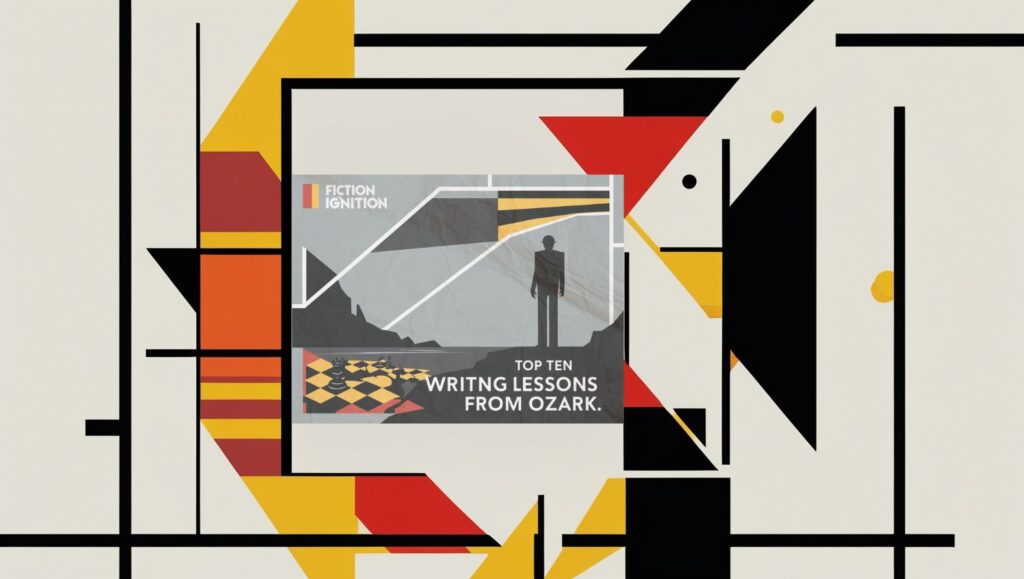Hello, Fiction Igniters!
Today, we’re diving deep into the beautifully bizarre world of Charlie Kaufman. The man behind Eternal Sunshine of the Spotless Mind and Adaptation has taught me more about storytelling than any seminar ever could. So, let’s count down the top 10 things this genius has taught me about writing, from one humble word alchemist to you, my fellow literary pyromaniacs.
10. Your Weirdness Is Your Weapon
If you’ve seen Being John Malkovich, you know Kaufman’s not afraid to let his freak flag fly. Writing isn’t about playing it safe; it’s about leaning into the quirks that make your brain your brain. I used to think my strangest ideas were “too out there,” but then I realized: out there is where magic happens.
Actionable Tip: Next time you think, “This is too weird,” remember: Kafka gave us a dude waking up as a cockroach. Go weird or go home.
9. Characters First, Plot Second
Kaufman’s stories aren’t driven by plot—they’re propelled by characters. Look at Joel and Clementine in Eternal Sunshine. Their messy, real emotions make us care, even when the narrative takes a mind-bending detour.
Actionable Tip: Think about your character’s deepest fear or wildest desire. Build your story around that. For example, in The Great Gatsby, Gatsby’s obsession with Daisy shapes everything.
8. Let Vulnerability Fuel Your Stories
Kaufman’s work oozes vulnerability. Whether it’s Craig in Being John Malkovich or Caden in Synecdoche, New York, his characters expose the soft underbelly of the human experience.
Actionable Tip: Write a scene where your character is completely exposed—emotionally, physically, or spiritually. Hemingway mastered this in The Old Man and the Sea when Santiago admits defeat but finds dignity.
7. Embrace the Meta
In Adaptation, Kaufman literally writes himself into the script. It’s gutsy, but it works. Why? Because it’s honest and self-aware.
Actionable Tip: Break the fourth wall in your next story. Even a subtle nod, like Vonnegut’s “And so it goes,” can connect you directly to your reader.
6. Messy is Beautiful
Kaufman’s stories are often chaotic and non-linear, but life is messy, too. The emotional resonance shines through the cracks.
Actionable Tip: Don’t over-polish. Let your first draft be wild. Think of Toni Morrison’s Beloved: its fragmented structure is part of its power.
5. Themes Over Rules
Charlie Kaufman doesn’t stick to a three-act structure, and neither should you if it doesn’t serve your story. Instead, he explores big, juicy themes like identity, memory, and mortality.
Actionable Tip: Write down your story’s core theme—like “the price of ambition” for Macbeth. Keep that theme front and center as you write.
4. Lean Into Uncertainty
Kaufman doesn’t spoon-feed his audience; he leaves room for interpretation. The ending of Synecdoche, New York still sparks debates.
Actionable Tip: End a story with a question, not an answer. Look at The Road by Cormac McCarthy. It’s haunting because it’s ambiguous.
3. Don’t Fear Failure
Not all of Kaufman’s work is universally loved, but he keeps pushing boundaries. Writing isn’t about perfection; it’s about persistence.
Actionable Tip: Embrace failure as a teacher. Harper Lee’s second novel was panned, but To Kill a Mockingbird remains iconic.
2. Tension Can Be Introspective
Kaufman proves you don’t need car chases to create tension. The battle inside someone’s mind can be just as gripping.
Actionable Tip: Write a scene where your character battles themselves. Dostoevsky nailed this in Crime and Punishment with Raskolnikov’s moral torment.
1. Your Voice Is Enough
Above all, Kaufman taught me that I don’t need to mimic anyone else. My voice, with all its flaws and fire, is enough.
Actionable Tip: Write like you. Forget trends and write the story only you can tell. Think of Neil Gaiman’s Coraline: it’s pure Gaiman, from top to bottom.
So, Fiction Igniters, what are you waiting for? Get out there and write with your weird, messy, beautiful voice. Charlie Kaufman taught me that writing isn’t about following rules; it’s about following your soul.
Until next time: don’t write, ignite!









